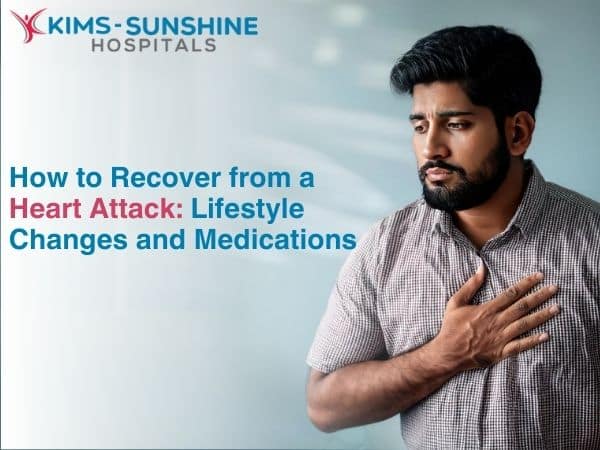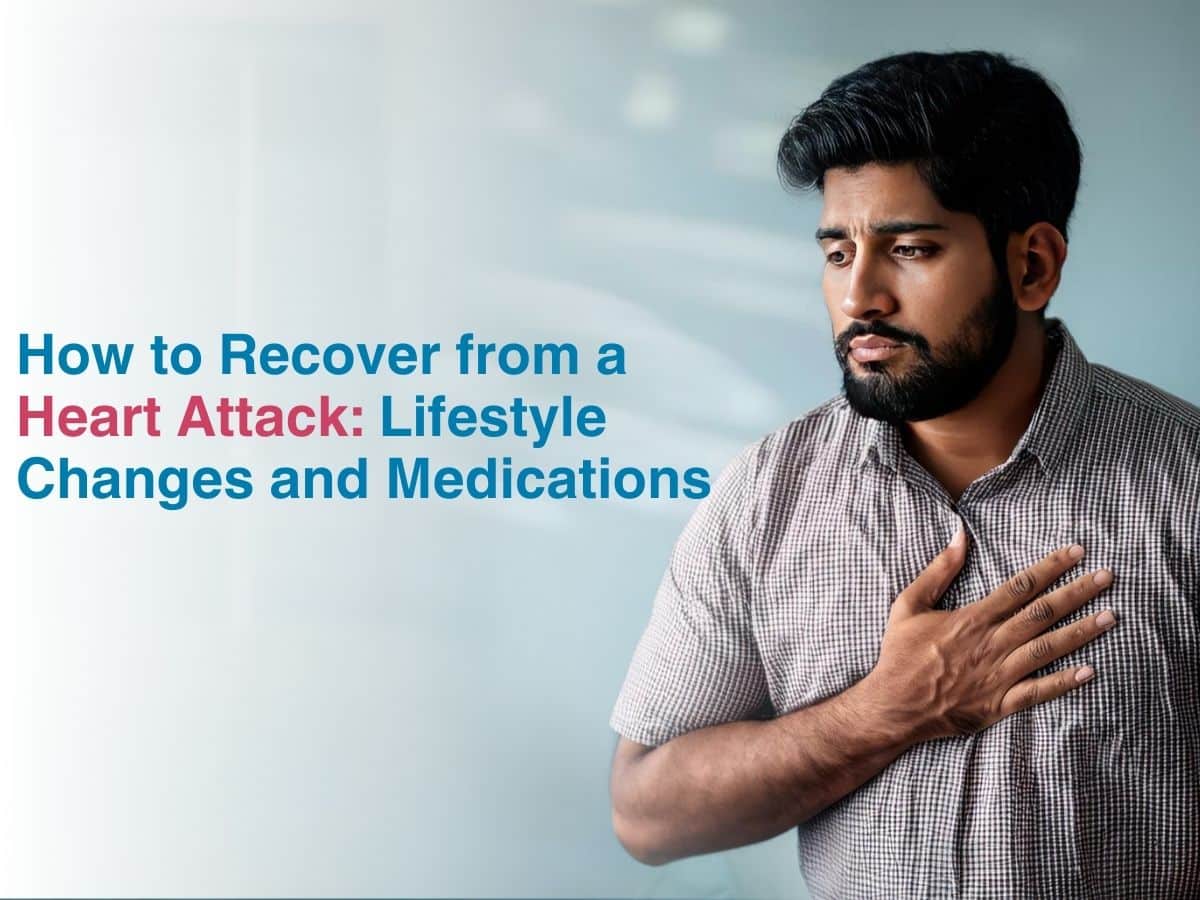
How to Recover from a Heart Attack: Lifestyle Changes and Medications

Heart attacks don’t happen very randomly- they occur due to presence of certain risk factors. We all know what the symptoms can be- chest pain, jaw pain or radiating pain on the left from chest to the arm, upper back pain etc. Obviously, the sentence ‘you have had a heart attack’ can be very distressing to hear. But it does not mean you cannot live life normally afterwards.
How Long Does it Take to Recover from a Heart Attack?
Recovery takes place slowly but surely and for many people it is dependent on how their overall health was before the cardiac event. A general timeline for reference is however this- anywhere between 2 weeks to 3 months or slightly longer may be needed to recover and get back to some normalcy with respect to daily routine. Recovery also is very much dependent on how severe the cardiac event was, the kind of treatment given and how soon it was administered along with concomitant medical conditions. If surgery was required then recovery will take slightly longer. It is also crucial to remember that damage to the heart is permanent in some cases and this is seen as scar tissue.
Diet and Lifestyle Changes after a Heart Attack-
After the first few weeks though, you should be able to stop complete bed rest and focus on being able to go through your daily chores. Learning to pace yourself becomes important. Activities like climbing stairs, driving, lifting or pushing any item cannot be done immediately, so talk to your doctor about when. You should concentrate more on what you eat and begin to plan meals accordingly.
Some diet related tips include- eating steamed, boiled or cooked veggies and fruits with a special focus on lean meat and low fat dairy for protein needs. Healthy fat sources like nuts, fish and fruits need to be considered. You should not be eating very highly fried or processed foods at all. No more drinking and smoking for you either. If your heart attack was due to high cholesterol levels and blocked arteries, getting in some form of exercise everyday is a good idea. You can take such steps to prevent a second heart attack from occurring in the future and improve your health goals gradually. Active stress management has to be a daily goal for you now. So get back to your hobbies or meditate or do whatever it takes to feel better at the end of a long day. This will help you sleep better and aid in long-term recovery. You should also keep a watch on your blood pressure levels.
Conclusion
You can still feel shocked after you have come home from the hospital and begin to feel depressed. You may resent having to depend on other people to get your work done. Though these feelings are normal, you need to learn to get past them and cope with them. So, joining cardiac rehab programs and getting some therapy sessions can greatly help. A common mistake individuals make is they think they are alone. They are not. Just go out and get the help you need and you should be okay in a while!
Frequently Asked Questions
How long does it take to fully recover from a heart attack?
What medications do I need to take after a heart attack?
Can I return to normal activities after a heart attack?
What exercises are safe after a heart attack?
What are the long-term effects of a heart attack on my health?

Dr. Pardha Saradhi Sivakoti
MBBS, MD, DM (Cardiology)
Associate Consultant Cardiologist
Subscribe to our Newsletter






